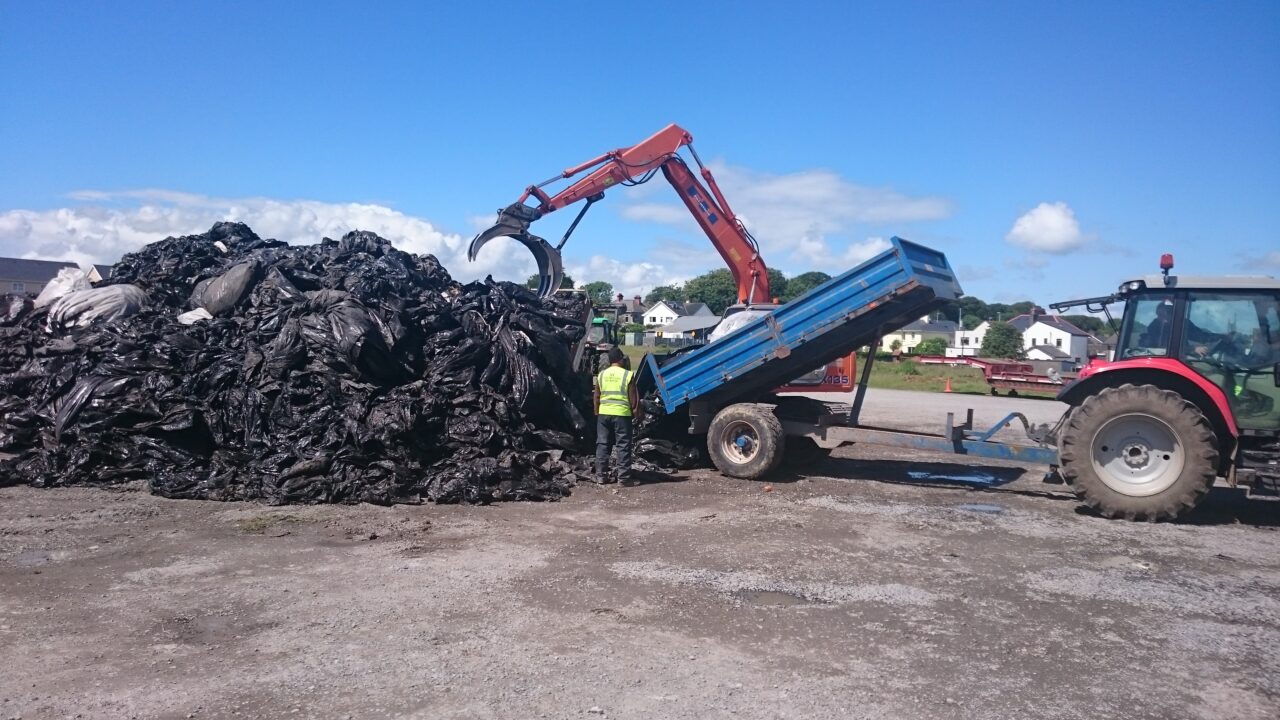The closure of the Chinese market to seven million tonnes of plastic waste at the beginning of last year has left Irish farm plastic recyclers “with no choice” but to increase both farmer collection charges and the recycling levy this year.
The market closure is “making life difficult” according to the Irish Farm Films Producers’ Group’s (IFFPG’s) manager, Liam Moloney, who added that half of this plastic waste would have come from Europe.
This decision has resulted in European recyclers now being “inundated” with material that previously went to China and IFFPG will now be charged “significant” gate fees by European recyclers this year as opposed to receiving an income for plastic that it previously supplied.
“This additional cost to the company will be in the region of €1.3 to €1.4 million,” explained Moloney.
This has left IFFPG with no choice but to increase farmer collection charges from €15 to €20/half tonne with the label code at the bring-centre and from €40 to €45/half tonne at the farmyard with the label code.
In addition, IFFPG is increasing the recycling levy from €110 to €140/t for farm plastic products placed on the market by its members (wrap, pit covers, netting and twine).
This will see the levy on a standard roll of wrap increase from €2.86 to €3.64/roll.
IFFPG has said it regrets the above increases but added that they are considered to be necessary in order to meet significantly increased recycling costs.
However, Moloney stressed that as both European recycling capacity and demand for recyclate increases in the coming years – driven by increased awareness regarding plastic pollution – demand and price available for plastic waste is expected to significantly improve.
Farm plastic waste currently collected by IFFPG is recycled into a range of products by European recyclers, including refuse sacks, construction plastic products and furniture.
The recycling process involves shredding, washing and drying the waste before it’s melted into plastic pellets, which are the building blocks for new products.
